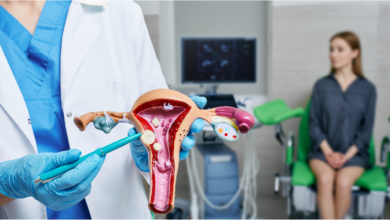
What is high blood pressure?
High blood pressure, also known as hypertension, is a condition in which blood exerts excessive force on the walls of your arteries. This constant pressure can damage your blood vessels, leading to a variety of health complications.
What are the symptoms of high blood pressure?
Often, there are no symptoms of high blood pressure, especially in its early stages. However, as the condition progresses, you may experience:
- Headaches
- Dizziness
- Shortness of breath
- Chest pain
- Irregular heartbeat
- Vision problems (blurred or double vision)
- Blood in the urine
- Fatigue
- Nosebleeds
Who can suffer from high blood pressure?
Anyone can have high blood pressure, but certain factors increase your risk, including:
- Age
- Family history
- Obesity
- Lack of physical activity
- Unhealthy diet (high in sodium and saturated fat)
- Smoking
- Excessive alcohol consumption
- Stress
- Certain medical conditions (e.g., diabetes, kidney disease)
What are the types of high blood pressure?
- Primary (essential) hypertension: This is the most common type, with no identifiable underlying cause.
- Secondary hypertension: This type is caused by an underlying medical condition, such as kidney disease, thyroid problems, or certain medications.
What tests are available for high blood pressure?
Your doctor will likely use the following tests to diagnose hypertension:
- Blood pressure readings (multiple readings on different days)
- Physical examination
- Medical history review
- Blood tests (to check for underlying conditions)
- Electrocardiogram (ECG)
- Echocardiogram
- Kidney function tests
What is the treatment for hypertension?
Treatment of hypertension usually involves a combination of lifestyle changes and medications.
- Lifestyle changes:
- Diet: Adopting a heart-healthy diet rich in fruits, vegetables, whole grains, lean protein, and low in sodium, saturated fat, and cholesterol can significantly reduce blood pressure.
- Regular exercise: Aim for at least 30 minutes of moderate-intensity exercise most days of the week.
- Weight management: If you’re overweight or obese, losing weight can help lower blood pressure.
- Stress reduction: Practice relaxation techniques such as yoga, meditation or deep breathing to manage stress.
- Limit alcohol consumption and avoid smoking: Excessive alcohol consumption and smoking can raise blood pressure.
- Adequate sleep: Aim to get 7-8 hours of good sleep every night.
Medications:
- If lifestyle changes alone are not enough, your doctor may prescribe medications to help control your blood pressure. These medications may include:
- Diuretics (water pills)
- ACE inhibitors
- Angiotensin II receptor blockers (ARBs)
- Calcium channel blockers
- Beta-blockers
Which doctor will treat hypertension?
• Cardiologist
Can hypertension be completely cured?
• Although hypertension is not usually curable, it can be managed effectively with a combination of lifestyle changes and medications. With consistent treatment, you can greatly reduce your risk of complications associated with high blood pressure.• Although hypertension is not usually curable, it can be managed effectively with a combination of lifestyle changes and medications. With consistent treatment, you can greatly reduce your risk of complications associated with high blood pressure.





